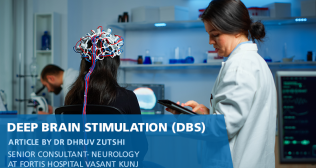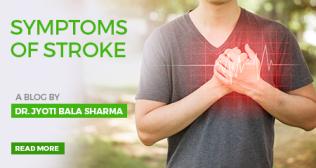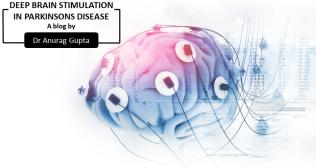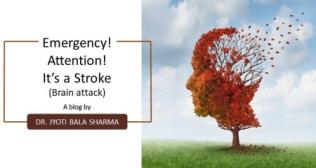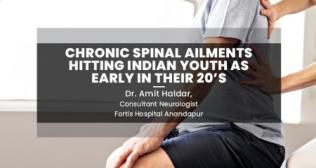
Can the MIND Diet Really Improve Your Memory?
In our quest for long-term health, we often focus on our hearts, our weight, and our physical strength. Yet, one of the most pressing concerns for many as they age is the health of their brain, specifically the preservation of memory and cognitive function. The fear of cognitive decline has spurred a wealth of research into how our lifestyle choices, particularly our diet, can protect our minds. This has led to the development of specific eating patterns designed not just for the body, but for the brain.
Among the most promising of these is the MIND diet. This scientifically backed approach doesn't promise a quick fix but offers a sustainable, evidence-based strategy to nourish the brain, slow cognitive decline, and support long-term mental sharpness.
What is the MIND Diet?
The MIND diet is not a commercial weight-loss plan but a research-based dietary pattern developed by nutritional epidemiologists at Rush University Medical Center. The name itself, MIND, stands for Mediterranean-DASH Intervention for Neurodegenerative Delay. As the name implies, it is a hybrid of two of the most well-respected and scientifically proven dietary patterns:
- The Mediterranean Diet: Known for its heart-health benefits, emphasizing fish, olive oil, fruits, vegetables, and whole grains.
- The DASH Diet (Dietary Approaches to Stop Hypertension): Designed to lower blood pressure, focusing on fruits, vegetables, and low-fat dairy.
The creators of the MIND diet took the most compelling components from both of these plans and then specifically tailored them by emphasizing foods and nutrients that have been scientifically shown to benefit brain health.
The Core Principles of the MIND Diet
The MIND diet is less about strict rules and more about creating a consistent pattern of eating. It is structured around 10 "brain-healthy" food groups to include in your diet and 5 food groups to limit.
The 10 Brain-Healthy Food Groups to Emphasize
- Green Leafy Vegetables: Aim for at least six servings per week. This includes spinach, kale, collard greens, and salad greens. They are packed with brain-protective nutrients like folate, vitamin E, and carotenoids.
- All Other Vegetables: Try to eat at least one other vegetable every day. A variety of colors ensures a wide range of antioxidants.
- Berries: Eat berries at least twice a week. Blueberries, in particular, are singled out for their high concentration of flavonoids, which have been shown to have potent antioxidant and anti-inflammatory effects.
- Nuts: Consume five or more servings of nuts per week. They are a great source of healthy fats, fiber, and vitamin E, which is a key antioxidant for brain health.
- Olive Oil: Use extra virgin olive oil as your primary cooking oil. It is a cornerstone of brain-healthy eating due to its monounsaturated fats and antioxidant compounds.
- Whole Grains: Aim for at least three servings daily. This includes oatmeal, quinoa, brown rice, and whole-wheat bread and pasta.
- Fish: Eat fish, particularly fatty fish like salmon, mackerel, and sardines, at least once a week. They are the best source of omega-3 fatty acids, especially DHA, which is a major structural component of brain cells.
- Beans: Include beans, lentils, and soybeans in at least four meals every week. They are rich in fiber and protein.
- Poultry: Eat chicken or turkey at least twice a week (non-fried).
- Wine: The diet includes the option of one glass of wine per day. Research has suggested a link between light to moderate alcohol consumption and reduced risk of dementia, but this is entirely optional and not recommended for everyone.
The 5 Unhealthy Food Groups to Limit
The goal is to strictly limit these foods, as they are associated with inflammation and are detrimental to brain health.
- Red Meats: Limit to fewer than four servings per week.
- Butter and Stick Margarine: Limit to less than one tablespoon a day. Use olive oil instead.
- Cheese: Limit full-fat cheese to less than one serving per week.
- Pastries and Sweets: Limit to fewer than five servings per week. These are high in sugar and unhealthy fats.
- Fried or Fast Food: Limit to less than one serving per week.
The Science Behind a Diet for Good Memory
The power of the MIND diet lies in the synergistic effect of its recommended foods. The original study published in 2015 followed over 900 older adults for nearly five years. It found that participants who adhered closely to the MIND diet had a rate of cognitive decline equivalent to being 7.5 years younger.
The mechanisms behind this are clear:
- Fighting Oxidative Stress: Berries, leafy greens, and olive oil are rich in antioxidants that protect brain cells from damage caused by unstable molecules called free radicals.
- Reducing Inflammation: Chronic inflammation is a key driver of neurodegenerative diseases. The omega-3 fatty acids in fish and the compounds in olive oil are powerful anti-inflammatory agents.
- Supporting Brain Structure: DHA from fatty fish is a literal building block for brain neurons and is crucial for efficient communication between brain cells.
Creating a Diet to Increase Memory and Brain Function
Adopting the MIND diet is about making sustainable shifts. A great way to start is by focusing on adding the healthy foods rather than just restricting the unhealthy ones. For example, make a goal to add a salad to your lunch every day or to snack on a handful of nuts instead of chips. A sample day could look like this:
- Breakfast: Oatmeal with berries and a sprinkle of walnuts.
- Lunch: A large salad with grilled chicken, a variety of vegetables, and an olive oil-based vinaigrette.
- Dinner: Baked salmon with a side of quinoa and roasted broccoli.
How to Boost Mind Memory Beyond Diet
While a brain-healthy diet is a powerful tool, it works best as part of a holistic lifestyle. To truly boost mind memory and cognitive health, combine your dietary efforts with:
- Regular Physical Exercise: It increases blood flow to the brain and supports the growth of new neurons.
- Mental Stimulation: Keep your brain active by learning new skills, doing puzzles, or reading.
- Quality Sleep: Sleep is when the brain clears out toxins and consolidates memories.
A Commitment to Long-Term Brain Health
The MIND diet is not a short-term fix but a long-term investment in your cognitive future. Its principles are flexible, accessible, and backed by compelling scientific evidence, making it a practical and powerful strategy.
By focusing on a pattern of eating rich in plant-based foods, healthy fats, and powerful antioxidants, you are actively protecting your brain from the inflammation and cellular damage that lead to cognitive decline, paving the way for a sharper, healthier mind for years to come.
Frequently Asked Questions
1. How is the MIND diet different from the Mediterranean diet?
Ans. The MIND diet is a hybrid but places a much stronger emphasis on specific foods scientifically shown to benefit the brain, such as green leafy vegetables and berries, while being less focused on fruit and dairy consumption.
2. Do I have to follow the diet perfectly to see benefits?
Ans. No. The original research found that even moderate adherence to the diet provided significant protection against cognitive decline, which makes it a very forgiving and realistic approach.
3. Can this diet help if I already have some memory loss?
Ans. The diet was designed to slow the rate of cognitive decline. While it may help support brain function in those with mild memory issues, it is not a cure. It's essential to consult a doctor for any memory concerns.
4. Is the MIND diet difficult to follow?
Ans. Most people find it very manageable because it is flexible and focuses on adding healthy foods rather than on extreme restriction or calorie counting.
5. Do I have to drink wine on this diet?
Ans. No, the wine component is completely optional. If you do not already drink alcohol, doctors do not recommend starting for the sake of this diet.







